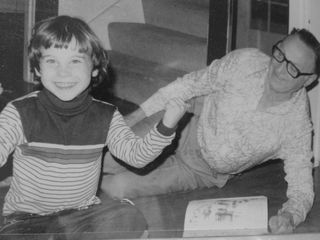Our experience of time has been altered. We used to be carried along by the rush of events, propelled by commitments and schedules. In COVID captivity, our days are running together with little to distinguish one day from another. Hours of life have been returned to us that were previously filled to the brim with going here and there, doing this and that unceasingly. Now we seem to have more time, but are we doing less with it?
The markers of past, present, and future that formed our personal narratives have shifted. Determining the day of the week is effortful rather than automatic. We can’t think too far ahead without encountering a host of unknowns. The past without COVID seems increasingly disconnected and irrelevant, a kind of unrecoverable innocence. This makes it hard to locate ourselves in our own life stories. Where have we been? Where are we going? What should we be doing?
What we have now for sure is the day in front of us, or at most the current week. Beyond that, it gets dicey. Our options depend on virus numbers going up or down; everything we can’t control really runs the show. It’s fair to say that we have less agency now in the big factors of our lives than ever before. What will become of our relationships, our jobs, our savings and debts? When we will be able to see distant friends and relatives again? Who will live and who will die has always been out of hands, but now the fragility of our tenure on earth is all the more apparent.
We veer at a moment’s notice from the transcendent to the mundane. Now that we’re at home, each day consists of a succession of small choices in our use of non-work time. Many of us spend time with loved ones more consciously. Some make time for home projects that have long called out for attention. Almost everyone has been killing time with endless scrolling through the news, binge-watching episodes of shows, or caught up in video games. Passing time, pastimes, happen through any number of diversions we call pleasures or perhaps a work ethic that results in closets getting straightened out, bookshelves organized, piles of papers dealt with at long last.
What does it even mean any more to declare that a day has been “productive” rather than frittered away? We naturally want to have something to show for the day. There may be certain accomplishments that redeem an afternoon—tasks crossed off a list, such as 10 job applications submitted online, five networking emails sent out, at least one hassle phone call made to an insurance company or billing office. There are always the things we have to make ourselves do from which we then gain the satisfaction of having gotten them done. It’s good not to have squandered the day, but can we call this living?
Excessive sameness blunts our perceptions and makes us restless. No sooner do we come up with a new set of daily rhythms then we start craving their disruption. An unvarying stretch of sunny days may prompt our yearning for some kind of atmospheric disturbance, maybe a torrent of rainfall or a lightning storm with hail. During the downpour, our gaze sharpens, alertness rises, and our senses extend their reach. Our cerebral functions are designed to come alive with novelty and challenge.
Random contacts with strangers have almost entirely vanished. A friend recounted how much she is relishing the conversations she has while waiting to get into the grocery store each week. Six feet apart and masked, people ahead and behind her in line compare experiences and laugh at absurdities. These days, exchanging perspectives is a lot more than mere chitchat; we crave the refreshment of a new point of view, even if it means dislodging a few comfortable opinions or safe assumptions.
Lately, I find myself identifying with my old car. My 2000 Accord needs to be driven as much as I need to take a drive. The oil circulates, my blood flows, the belts and hoses are made to perform their functions, and I look around at the world as though called back to life. Just like my car, I need to be started up and revved from time to time, confronted with the unexpected pothole, feeling the surge of acceleration along with the necessity of vigilance.

Perhaps our new relationship with time comes down to the quality of our attention. At once we need to take solace in the ordinary, like sweeping the kitchen floor, and seek out the extraordinary, a better conversation with our neighbor than we have had in all the years living next door to each other. These COVID days ask us to adjust our standards for deciding that a day has been well-lived, letting ourselves be reassured by repetition the way dogs and young children are. They invite us into their experience of time, urging us to get down on the floor and have fun, to be engaged with what’s happening right now, and to welcome all available delights. It’s time to eat when you are hungry, to sleep when you are tired, to cry when you are disappointed, to laugh and love as though there is no clock on the wall and no pull of tomorrow. This is what we have, when everything else is uncertain.
Copyright: Wendy Lustbader, 2020




